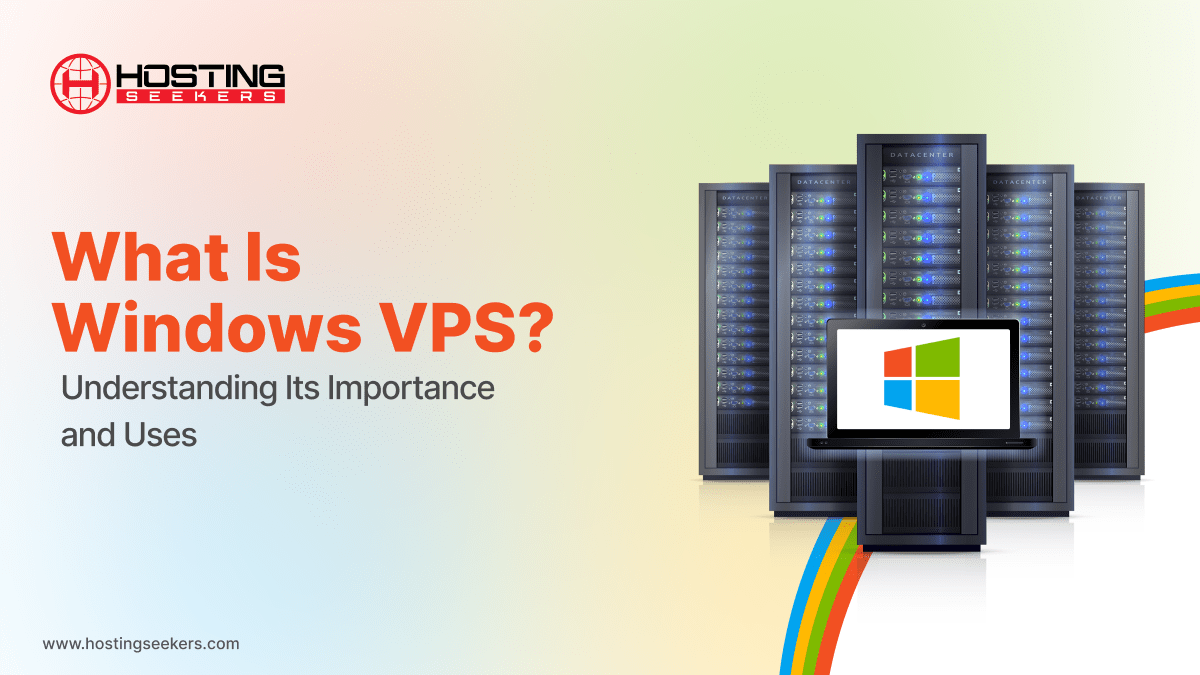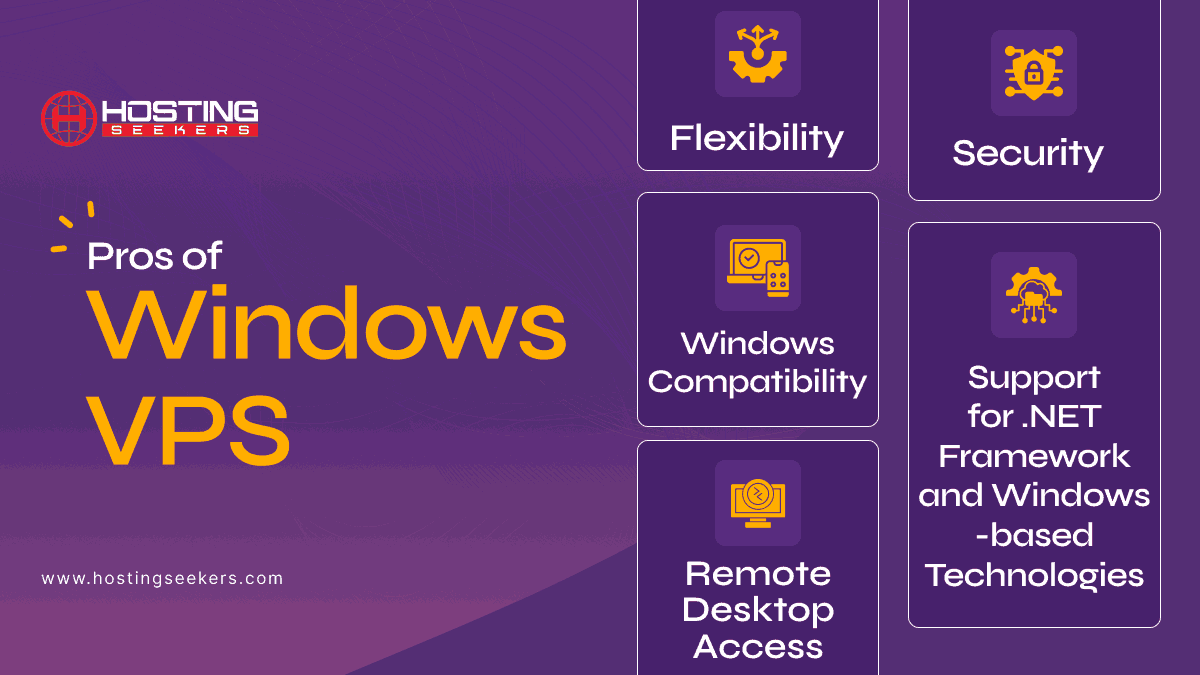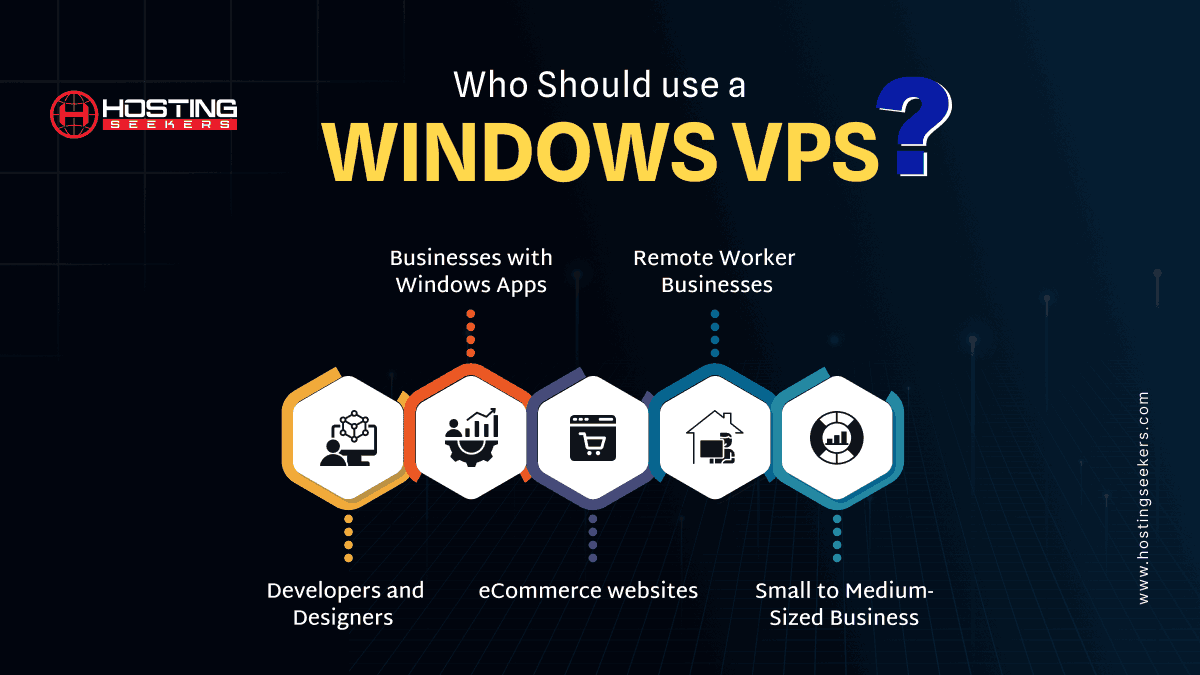
What Is Windows VPS? Understanding Its Importance and Uses
VPS Windows Hosting Updated on : December 4, 2024Windows VPS hosting is a vital solution in web hosting, providing performance, flexibility, and security. Dedicated Windows VPS hosting has features that make it famous. In this blog, we will understand more about Windows VPS and its importance and uses.
Table of Content
What is Windows VPS?
Windows VPS is the type of virtual server hosting service that operates on the Windows operating system and is offered by hosting service providers. It’s an individual virtual server environment operating on a Shared physical server but with its own configuration and resources. This virtualization tech enables the partitioning of a physical server into multiple virtual servers, individually running its own instance of the Windows operation system.
With Windows VPS, users have complete control over their virtual server environment, allowing them to install and configure software, manage system settings, and host websites or apps. Also, it is mainly utilized by individuals and businesses who need a Windows-based environment for smoothly operating specific software apps or hosting sites developed to run on Windows servers.
Moreover it is utilized for various purposes, such as deploying apps, hosting websites, business email hosting, setting up game servers, and more.
Usage of Windows VPS
A VPS Windows hosting is selected when the business or users require a virtual server hosting environment that supports Windows-specific tools, technologies, or applications. Let’s check where it is typically used:
1. Web Hosting
For websites developed with technologies optimized for or particular to the Windows environment, like ASP.NET or .NET Cor.
2. Remote Desktop Accessing
Windows VPS also performs as a remote workstation. Users can easily access a Windows environment from anywhere, making it vital for remote work demonstrations or software testing.
3. Windows-Specific Apps
Some apps and software solutions, such as ASP.NET apps, Microsoft SQL server (MSSQL), and other Microsoft technologies, are mainly designed and developed for the Windows platform.
4. Gaming Servers
Some users organize private gaming servers on Windows VPS, especially for games that are compatible with or optimized for Windows.
5. Database Server
VPS windows are also used to host databases, especially those needing a Microsoft SQL server.
6. Development and testing
Developers utilize VPS to test apps in a private environment. Also, Windows VPS is selected when the app is intended for a Windows audience.
7. Business Applications
Windows-centric business apps like SharePoint, Exchange server, or other Microsoft Dynamics Products.
Pros and Cons of Windows VPS
Pros of VPS Windows

1. Flexibility
Whether it’s the CPU, RAM, storage capacity or bandwidth, any customer can regulate his/her Windows VPS setup according to what they need for their everyday usage. This will therefore ensure that all customers optimize their Windows VPS (both performance-wise and cost-wise), something that will in turn help in enhancing RAM, CPUs, Solid State Drives (SSD) Disk capacity and monthly bandwidth.
2. Security
Windows comes with high-security features that protect data and apps already installed on it (VPS). Windows hypotheses are never-ending but there also international compatibility support such as antivirus programs or other solutions for encrypted connection among others.
3. Windows Compatibility
Windows VPS is more familiar with many famous applications and software, including SQL Server, Microsoft Office software’s, and more. Therefore, users can easily integrate and optimize their tasks.
4. Remote Desktop Access
Windows VPS mostly comes with remote desktop access, enabling users to connect smoothly with their virtual server from anywhere with an internet connection. This feature also provides flexibility in controlling, managing, and accessing your server.
5. Support for .NET Framework and Windows-based Technologies
If your apps or websites are developed using the .NET framework or other Windows-based technologies, a VPS for windows is vital for optimal compatibility and performance.
Cons of Windows VPS

1. Price
VPS for windows is mostly costlier due to high licensing fees.
2. Resource Intensity
It is more resource-heavy than Linux.
3. Less Open Source
Not as open-source friendly as Linux.
4. Security
Windows VPS hosting’s is historically considered less secure than Linux.
5. Updates & Reboots
Windows VPS may need more downtime after updates.
Who Should use a Windows VPS?

1. Developers and Designers
Web designers and developers who mostly with Microsoft Access, ASP.NET or other tech that is mostly windows-based may prioritize a Windows VPS for hosting their web apps and websites. In addition, it enables them to deploy and test their projects in an environment that is close to production servers.
2. Businesses with Windows Apps
Organizations that depend on Windows-specific software apps like Microsoft SharePoint, Exchange Server, and .NET applications can benefit from utilizing a VPS Windows server to host these apps in a reliable and Scalable environment.
3. eCommerce websites
Most eCommerce business websites are developed utilizing platforms like ASP.NET, NopCommerce, and other Windows-based eCommerce solutions that can leverage the ability of a Windows VPS for reliable and secure hosting. These platforms may need Windows-specific configurations and features for optimal performance.
4. Remote Workers Businesses
Remote employees from various geographies can use a Windows VPS for collaboration tools, centralized file storage, and remote desktop access. It offers an accessible and secure environment for employees to work on Windows, depending on apps and resources from anywhere with an internet connection.
5. Small to Medium-Sized Business
A Windows VPS is ideal for SMEs seeking a cost-effective hosting solution for their websites, email servers or business applications. It offers peace of mind, elastic growth and speed but spares them from initial fees and running costs of physical servers.
Selecting the Right Windows VPS Provider
1. Performance and Reliability
Check the specifications of the physical hardware. This incorporates CPU type, speed, RAM, and Disk Space. SSDs are preferable for faster data access speeds.
2. Uptime Guarantees
Look for the providers that offer high uptime guarantees (e.g., 99.9%). Uptime is crucial for ensuring that your services are always available.
3. Resource Scalability
Consider whether you can smoothly scale your resources up or down depending on your needs. This incorporates adding more RAM, CPU power, or storage without significant downtime.
4. Pricing
Make sure that the VPS pricing model is straightforward and without hidden charges. Most providers offer a flat price, while others might charge depending on the resources you consume.
5. Customer Support
Also, Windows VPS hosting provides multiple support channels for instance, email phone, live chat and make sure that you can easily gain support in a way that suits your business requirements.
6. Security and Privacy
Windows VPS providers come with mostly standard features that include SSL certificates, DDoS protection, firewalls, and regular backups.
7. Check for Add-on
Compliance: Make sure the provider meets relevant compliance standards for e.g., GDPR, HIPAA if application to your business.
Privacy Policies: Review their data handling and privacy policies to make sure your data is treated securely and in compliance with laws applicable to your industry or location.
Server Location and Network Connectivity: Select a provider with data centers close to your user base to reduce latency and improve load times. Choose a provider with data centers close to your user base to reduce latency and improve load times. Also, check if the provider has redundancy in their network connections and power supplies, which enhances reliability.
Summing Up
Windows VPS offers a flexible, robust, and secure solution for individuals and businesses. Therefore, by understanding its benefits, features, and the considerations involved in its implementation, users can make informed decisions that align with their specific requirements. Also, as technology advances, Windows VPS hosting continues to evolve, providing even more significant potential for efficiency and innovation.
Frequently Asked Questions
Q 1. What is Windows VPS used for?
Ans: A Windows Virtual Private Server (VPS) is used for hosting applications, websites, and other services on a virtualized instance of the Windows operating system.
Q 2. What is a VPS and what is it used for?
Ans: A Virtual Private Server (VPS) is a virtualized server that acts as a dedicated server within a larger physical server.
Q 3. What is the role of VPS?
Ans: The role of a VPS is to provide an isolated environment with dedicated resources (CPU, RAM, storage) that allows users to deploy and manage their applications and services without the limitations and constraints of shared hosting.
Q 4. Why do I need Windows VPS hosting?
Ans: Your applications or websites require specific Windows-based software or technologies like ASP.NET, MSSQL, or other Windows-only applications. You need a stable and isolated environment with dedicated resources.
Q 5. Where is VPS used?
Ans: VPS is used in various scenarios, including:
Web hosting for medium to large websites.
Application hosting for software that needs more resources than shared hosting can provide.
Development and testing environments for software developers.
Game server hosting for online multiplayer games.
Q 6. Who needs VPS?
Ans: VPS is suitable for:
Businesses with medium to high traffic websites that outgrow shared hosting.
Developers need isolated environments for development and testing.
Enterprises running resource-intensive applications.
Online businesses requiring reliable and scalable hosting solutions.




